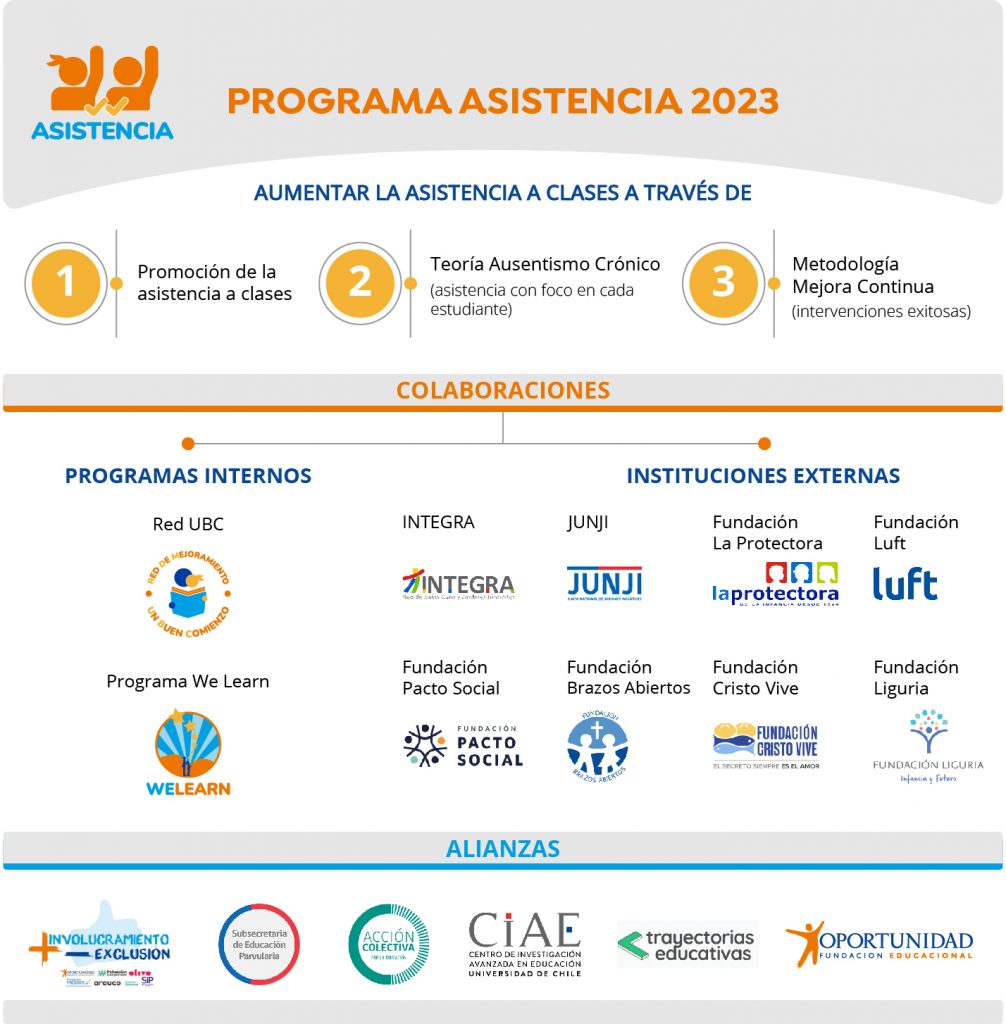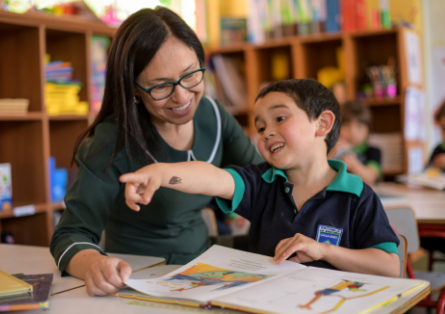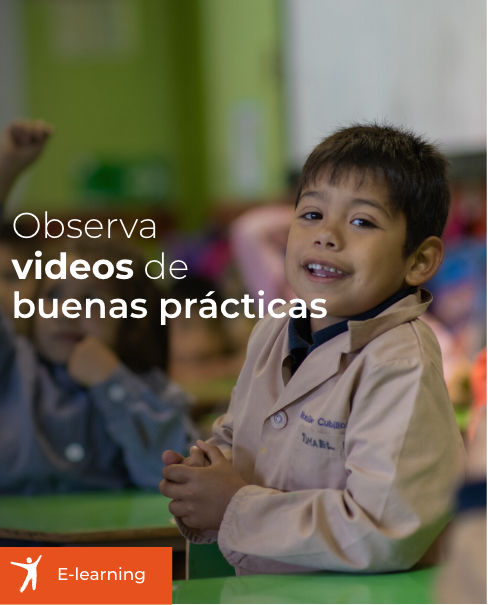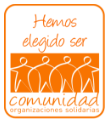About Assistance
When children are absent from school, there is a significant loss of learning opportunities, which limits their ability to reach their full developmental potential as they would if they attended regularly.
A study in Chile shows that missing school has a negative impact on children's learning. In fact, chronic absenteeism (missing more than 10% of school days) in pre-kindergarten and kindergarten has been shown to be associated with worse performance in SIMCE in second and fourth grade, both in mathematics and language (González and Kluttig, 2019).
The Attendancee programme provides tools and strategies to educational teams and managers of public schools and kindergartens, aimed at promoting and increasing the attendance of children in early education.
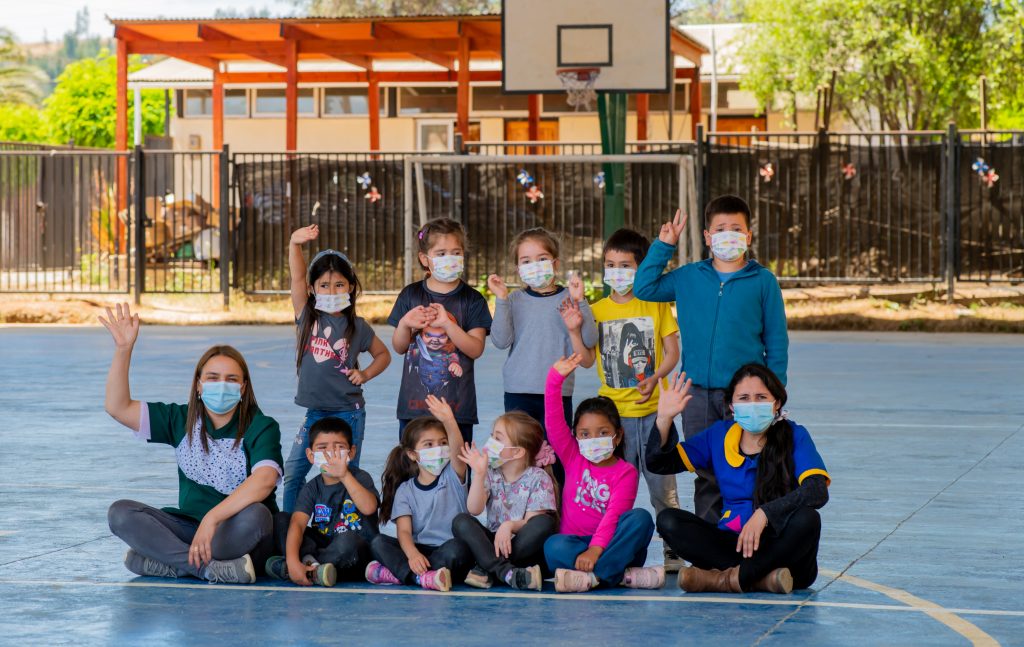
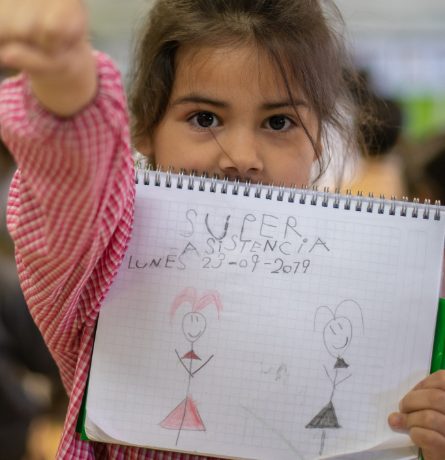
How to improve attendance?
In order to increase attendance, the program works through 3 lines of action.
1.- Promotion of class attendance
We generate audiovisual material and motivational campaigns aimed at children and their families to raise awareness about the importance of attending school.
We currently have an animated series aimed at pre-school children, where the protagonist is the character Super Assistance, whose motto is "You have to be there to learn".
Check out the trailer for the Super Assist animated series.
Check out the video for families here
Chronic Absenteeism (CA) theory; new indicator of attendance.
When a student misses 10% or more of the school days during the year, he or she is chronically absent, a situation which, according to national and international studies, can have serious consequences for present and future learning (Hedy Chang, Attendance Works).
In order to prevent CA, it is essential to count the number of days attended by each student during the year, in order to detect in time those with repeated absences and thus be able to intervene in a timely manner.
Since in our country attendance is measured on a monthly basis, through the average of the course or level, it is necessary to have a new indicator that allows us to know the "percentage of attendance of each child over the course of the year". In other words, if we are in the month of May, we can identify the percentage of attendance from March to May. In order to access this new indicator, Fundación Educacional Oportunidad makes available to the educational establishments with which it collaborates an attendance platform, which allows access to this new indicator and also automatically alerts those who are at risk of absenteeism in order to intervene in a pertinent and timely manner.
3.- Methodology of Continuous Improvement: Strategies
Through its improvement model, this methodology allows you to define a goal, set indicators and create ideas to increase attendance, which are tested to measure their effectiveness.
Through the detection of the causes of absenteeism, this methodology made it possible to establish a set of successful strategies, which are distributed in 2 complementary work focuses.
3.1.- Universal interventions: These include strategies to be applied to the whole class and are aimed at motivating children, making families aware of the importance of attending classes and preventing illnesses.
3.2.- Individual interventions: this focus of work is aimed only at children who are at risk of recurrent absenteeism or chronic absenteeism. In order to intervene individually, it is necessary to set up attendance committees. These committees should be made up of representatives of the management and educational team, who should frequently monitor the attendance of each student and carry out three fundamental steps: identify those at risk of CA; detect causes of their absenteeism; and propose specific interventions which are followed up to measure their effectiveness.
If you want to learn more about these strategies, we invite you to take the course at this link

We accompany:
Internal programs of the Foundation:
We collaborate with the Un Buen Comienzo programme to increase school attendance for pre-school children in their respective schools and kindergartens and with the We Learn programme to increase attendance in English classes from NT1 to 6° Básico.
We collaborate with:
We have worked in collaboration to increase assistance with the Local Public Education Services of Barrancas (communes of Cerro Navia, Pudahuel and Lo Prado) and Puerto Cordillera (communes of Coquimbo and Andacollo in the Coquimbo Region) INTEGRA, in kindergartens in the MR, Valparaíso Region and O'Higgins Region. (If you want to know more about this experience, click here).
We are currently working in collaboration with JUNJI in the development of a pilot programme in 5 regions of our country, with the Universidad Católica del Norte in their project "Let's go back together" in the Antofagasta Region, with Fundación Sara Raier and Fundación La Protectora.
Partnerships:
We also link with other public and private institutions that seek to improve the quality of education from the early years. In this context, we actively participate in the working group "more involvement less exclusion", which is made up of Fundación Presente, Olivo, Arauco, SIP, SAT de Peñalolén and we share our learning with the Sub-secretariat for Pre-school Education and the Observatorio Trayectorias Positivas.
